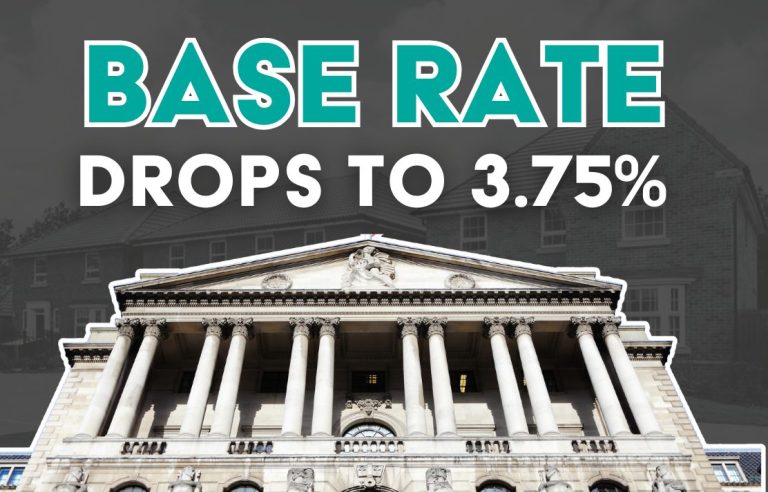Buying a home is an exciting and often long-awaited milestone.
However, it can cause financial concerns, especially for first-time buyers that may not understand all costs when buying a house.
In this guide, the expert mortgage advisors at UKMC cover everything you need to know.
What costs should you consider when buying a house?
From legal fees and moving costs to leasehold charges and general bills, let’s break down the main expenses that first-time home buyers need to consider.
Solicitor’s fees
When buying a home (whether it’s your first or 30th!), you’ll need support from a solicitor or a conveyancer to guide you through the legal process and ensure a smooth transfer of ownership.
Depending on factors including the complexity of the sale and property’s location, you can expect to spend £800-£1,500 on solicitors’ fees.
Conveyancing and property searches
Your solicitor will also conduct searches on your behalf to uncover important information about the property you want to buy.
These include:
- Environmental searches
- Land Registry searches
- Local authority searches
- Water and drainage searches
While your solicitor will usually handle these, you’re responsible for the costs paid to third parties on your behalf, which usually range from £250 to £300.
Survey costs
To properly assess the condition of a property and identify any potential problems, it’s strongly recommended that you have a survey conducted.
There are two main types:
- A basic home valuation survey
- A full structural survey
The basic home valuation survey costs approximately £250 on average, while a full structural survey can cost around £600.
A comprehensive survey can save you money in the long run by identifying unforeseen issues that may require significant repairs.
Stamp duty charges
In line with the most recent Stamp Duty Land Tax (SDLT) guidelines, first-time buyers in England and Northern Ireland are required to pay this type of tax if the property (or land) they’re buying costs more than the threshold.
For first-time buyers, the current SDLT threshold is £300,000 for a residential property worth up to £500,000 or less.
This means first-time buyers aren’t required to pay stamp duty on residential properties costing up to £300,000, but will need to pay 5% SDLT on the portion from £300,001 to £500,000.
Deposit amount
Typically, 5-10% of the house purchase price, it’s no secret the property deposit is one of the biggest costs when buying a house in the UK.
With advice from one of our experienced mortgage advisors that specialises in first-time buyer purchases, you’ll be able to weigh up options most appropriate for your personal circumstances.
You can also choose to increase your deposit if you want to secure lower monthly repayments.
Moving costs
If you need to rent a van to move your belongings, hire prices can vary significantly, ranging from £50 to several hundred pounds, while larger moving companies can charge thousands.
Additionally, expenses like packing materials and other moving supplies can add up quickly.
Be sure to shop around and compare prices to find the most cost-effective options!
Leasehold charges
If the property you’re buying is leasehold, you’ll need to factor in additional costs.
Leasehold properties require you to pay an annual charge to a landlord for the ground on which your house is built.
A type of ongoing charge, this cost is important to consider when budgeting for your regular homeownership outgoings because it’s not a one-off payment like moving fees or survey charges.
Insurance costs
With comprehensive home insurance offering greater financial security, you can enjoy peace of mind in the event any unforeseen circumstances impact your ability to make mortgage repayments.
While we recommend seeking insurance solutions from reputable providers, it’s essential to compare options and choose a policy that suits your unique needs.
Council tax payments
Council tax is an amount paid to the local council for the services it provides in your area.
The specific amount you’ll need to pay depends on the property’s value and the local tax rates.
If your property is located in England or Wales, there’s a handy tool that allows you to check the council tax band and estimated council tax costs for your property.
Ongoing expenses
Finally, it’s important to account for all the general bills associated with homeownership.
These include utilities like water, gas, and electricity, as well as maintenance and repair costs. Budgeting for these ongoing expenses can help you manage your finances more effectively.
Expert mortgage advice for first-time buyers
From legal fees and searches to surveys, moving costs, leasehold charges, insurance, council tax, and general bills, there’s lots to take into account when determining the true costs when buying a house in the UK.
By conducting thorough research, seeking professional advice when needed, and careful financial planning, you can navigate the process smoothly for a more rewarding homeownership journey.
Would you like to find out more about first-time buyer home ownership or how an expert mortgage advisor like UKMC can support your journey?
Simply give our friendly team a call today on 01925 573 328!
Alternatively, you can always reach out to us online or via email at hello@ukmc.co.uk.
Disclaimer
UK Mortgage Centre Limited is an Appointed Representative of Refresh Mortgage Network Limited.
Refresh Mortgage Network Limited is authorised and regulated by the Financial Conduct Authority. We are entered on the Financial Services Register under firm number 1019794.
As a mortgage is secured against your home, it could be repossessed if you do not keep up the mortgage repayments. The Financial Conduct Authority does not regulate some forms of buy-to-let mortgages.
The Financial Conduct Authority does not regulate will writing and taxation and trust advice.
You may be charged a fee for your advice. A typical fee is £495, which would be payable when you receive your mortgage offer. Your dedicated advisor will discuss this further on your free initial phone call.
Registered company number: 15825320







